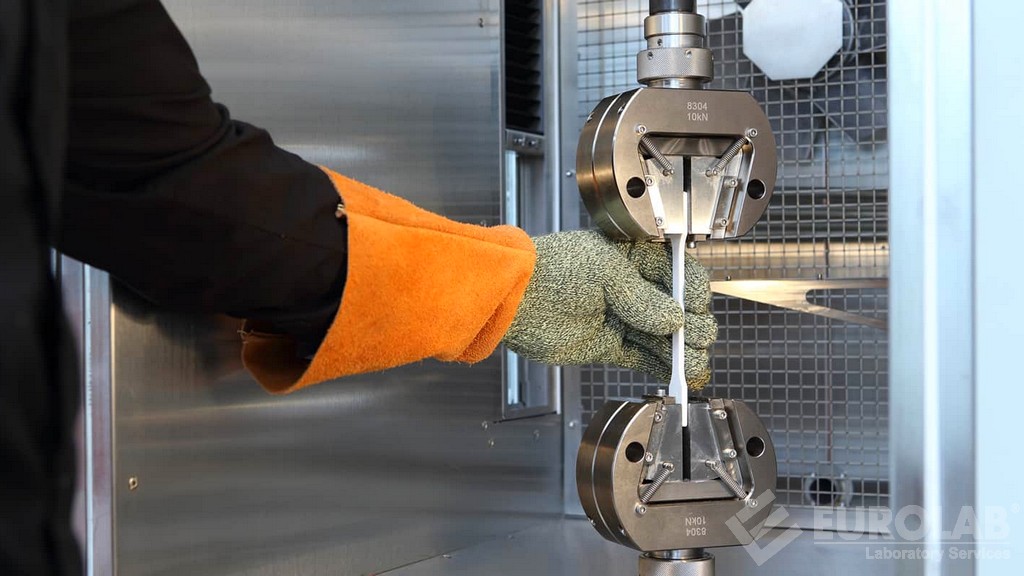API RP 38 Bactericide Effectiveness Testing in Oilfield Chemicals
The API Recommended Practice (RP) 38 outlines the testing methods for evaluating bactericides used in oilfield chemicals. This service is critical to ensure that these additives effectively control bacterial growth, which can otherwise lead to costly operational issues such as corrosion, fouling, and reduced efficiency of production equipment.
Bactericide effectiveness testing involves a series of laboratory-based procedures designed to assess the efficacy of bactericides in various oilfield chemical formulations. This service focuses on ensuring that the bactericides meet stringent API standards for performance under real-world conditions. The testing process typically includes:
- Sample preparation
- Bacterial inoculation
- Incubation and observation periods
- Dilution tests to evaluate effectiveness across different concentrations
- Survival rate determination
The testing protocol is meticulously designed to simulate the conditions found in oilfield operations, ensuring that bactericides perform optimally under field conditions. This includes considerations for temperature variations, salinity levels, and other environmental factors.
API RP 38 specifies detailed procedures for conducting these tests, including the use of specific media types and incubation times to accurately reflect real-world scenarios. Compliance with these standards ensures that oilfield chemicals meet industry benchmarks for safety and efficiency.
| Sample Type | Bacterial Species | Incubation Conditions | Test Parameters |
|---|---|---|---|
| Crude Oil Samples | Pseudomonas aeruginosa, Escherichia coli | 37°C for 24 hours | Bactericide concentration, contact time, pH levels |
| Water Samples | Bacillus subtilis, Staphylococcus aureus | 30°C for 48 hours | Cross-contamination prevention measures |
The testing process is not merely about compliance but also about enhancing the reliability and performance of oilfield chemicals. By ensuring that bactericides are effective, we contribute to safer operations and more efficient production processes.
Our laboratory adheres strictly to API RP 38 guidelines, providing accurate and reliable results that help quality managers and R&D engineers make informed decisions. This service is particularly valuable for compliance officers seeking to ensure adherence to industry standards and for procurement teams looking to source high-quality additives.
Applied Standards
The API Recommended Practice 38, titled "Evaluation of Bactericides," provides the framework for this critical testing service. This standard is essential in ensuring that bactericide formulations meet the stringent requirements set by the oil and gas industry.
API RP 38 specifies a series of tests designed to evaluate the bactericidal efficacy of chemical additives used in oilfield operations. These tests are conducted under controlled laboratory conditions to simulate real-world field scenarios, ensuring that the results accurately reflect performance under operational conditions.
The testing process outlined in API RP 38 involves several key steps:
- Preparation of test samples
- Inoculation with specific bacterial strains
- Incubation and observation over set time periods
- Determination of bactericide concentration required for 99.9% kill rate
The standard emphasizes the importance of accurate sample preparation to ensure consistent test results. It also highlights the need for precise control of environmental conditions, such as temperature and pH levels, which can significantly affect bacterial growth.
API RP 38 is widely recognized in the oil and gas industry for its comprehensive approach to bactericide testing. Compliance with this standard ensures that chemical additives are not only effective but also safe and environmentally responsible.
Industry Applications
| Application Area | Description |
|---|---|
| Reservoir Management | Bactericides used to prevent biofilm formation and bacterial corrosion in reservoirs. |
| Pipeline Maintenance | Application of bactericides to reduce microbial-induced pipeline degradation (MIPD). |
| Wellhead Equipment Protection | Bactericide treatments to prevent fouling and corrosion in wellheads. |
The effective use of bactericides is crucial for maintaining the integrity and efficiency of oilfield operations. By preventing bacterial growth, these additives help extend the operational life of equipment and reduce maintenance costs. This service plays a vital role in ensuring that chemical formulations meet industry standards and perform optimally under field conditions.
Use Cases and Application Examples
- Incorporation into scale inhibitor formulations to enhance their effectiveness against biofilm formation.
- Use in corrosion inhibitors to prevent bacterial-induced degradation of metal surfaces.
- Mixing with biocides for use in water treatment systems to eliminate pathogenic bacteria.
In the oil and gas sector, the effectiveness of bactericides is paramount. By incorporating these additives into various chemical formulations, we can achieve a safer and more efficient production environment. This service provides the necessary testing to ensure that such formulations meet industry standards and perform reliably under field conditions.





